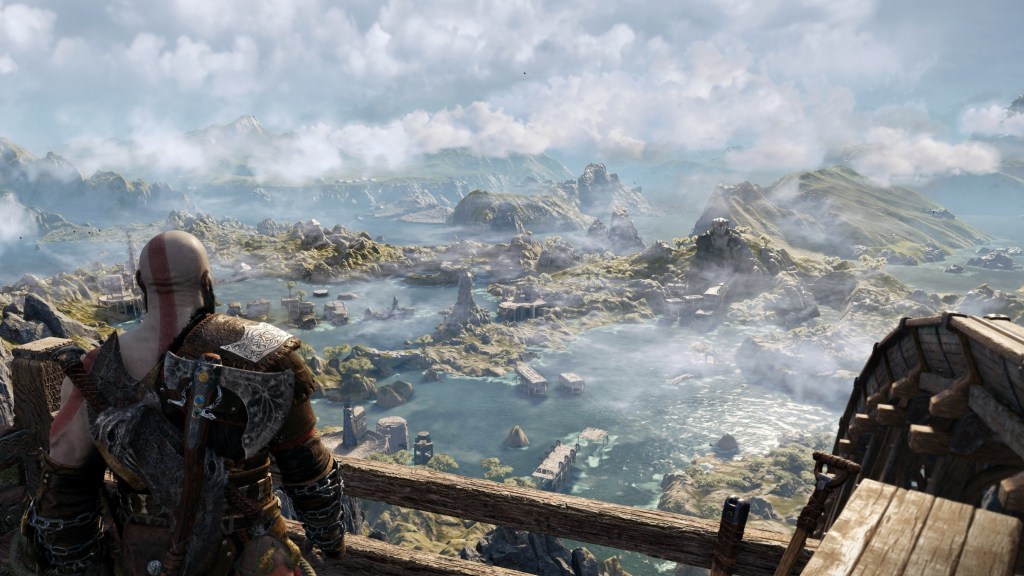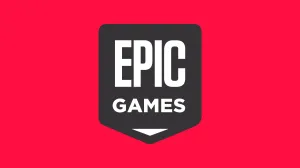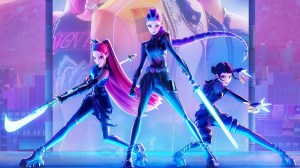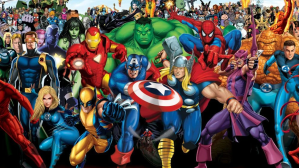The gaming industry has been in a unique spot over the last few years. Despite rising returns cementing gaming as a lucrative business, there have been several high-profile titles like Suicide Squad Kills the Justice League, Concord, and MindsEye that all suffered inglorious collapses once they reached a broader audience. Given the massive price tag that comes with the development of these kinds of titles, several major studios have had to cut back in drastic ways, raising the risk of the gaming business model stalling out just as it’s become one of the world’s most prominent entertainment industries.
Videos by ComicBook.com
This possibility isn’t lost on some of the developers of gaming’s most iconic titles, with God of War Ragnarok producer Meghan Morgan Juinio offering her own perspective on the current state of the industry. Given her own experience within a marquee franchise like God of War, it’s worth taking into account what she feels is a big challenge facing the gaming industry as a whole — and how the major studios can combat player fatigue surrounding large-scale AAA titles.
Why AAA-Game Studios Need To Turn More Towards The Indie Space

Maghan Morgan Juinio believes AAA studios need to diversify their output and break away from just releasing massive games — and she’s completely right. During an interview with Game Developer, the former co-head of Santa Monica Studio and director of product development expressed her belief that there needs to be a healthy balance of major blockbuster franchises and smaller projects. Otherwise, these studios risk diminishing returns from a less-than-enthused audience.
The big-name studios have increasingly focused their attention on large-scale titles like Ghost of Yotei, which boast life-like graphics and an expansive world. However, Morgan Juinio believes that in an industry awash with these kinds of expansive titles, players are more eager to sink their teeth into something unique. “I think gamers right now are a little bit desensitized to beautiful graphics and size and scale and scope. It’s almost a given, right?” Morgan Juinio explained. “If a game isn’t fun, it doesn’t matter how pretty it is. If a game isn’t engaging or delivering some hook, then it’s not going to connect with players.” Oversaturation in the market has led to once-bulletproof IP and companies staggering under the weight of their own ambition.
Morgan Juinio argues the solution is for major publishers to focus on a wider variety of games. While this may reduce the chances of a AAA-title breaking the bank, it also helps prevent more embarrassing collapses that bring down the entire company. Instead, smaller budgets and less extensive design cycles reduce the overall risk of any title and make the potential profits that much more impressive. Citing Astro Boy and Split Fiction as examples of smaller titles embraced by big publishers like Sony and EA to great success, Morgan Juinio’s argument is that the industry needs to be willing to play in smaller sandboxes. While the results might not reach the potential heights of the right AAA title, it also severely reduces the risk because of the significantly reduced budgets and development cycles. It’s a sentiment that’s been shared by other developers, and one that has seriously succeeded in the past. The last few years alone have seen experimental indie titles like Balatro become best-sellers and more straightforward titles like Astro Boy clean up at industry events like the Game Awards.
This is the sort of strategy that could encourage smaller development teams with passion projects, instead of the more broad-appealing titles that need to do incredibly well to even break even. This could be the key to the industry avoiding more morale-wrecking announcements like the closure of Tango Gameworks. Despite the massive success of their game Hi-Fi Rush, Microsoft closed down the company as part of an overall approach to reduce overhead brought on by other investments that failed to turn a profit. By focusing on a mix of small-scale titles and big-name franchises, developers can more safely approach multiple projects with greater confidence instead of placing all their eggs in one basket, all while more easily rewarding success and isolating failure.
This is an approach that naturally encourages invention and experimentation, which has always been a key aspect of fresh success in the world of gaming. It’s easier to get a unique concept off the ground if the entire company isn’t solely dedicated to that singular model. It means several different developers could be working on passion projects instead of forcing everyone to turn their attention to a well-worn IP. It’s reminiscent of the approach Nintendo has been famous for decades, with a solid mix of experimental games and established concepts helping the company endure in a perpetually volatile market. Morgan Juinio is spot on with her views on the titans of the gaming industry, and a shift towards more diversity in game development might be the key to keeping the gaming industry from falling into a rut it may not be able to escape.








